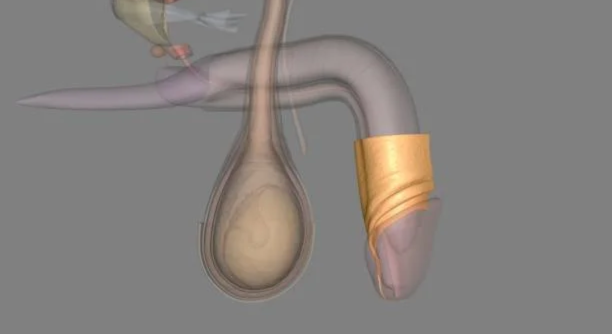If your child has a weak urine stream, repeated UTIs, or signs of urinary blockage, Posterior Urethral Valve could be the cause. Contact us today for expert evaluation and early treatment in Ghaziabad. Early intervention can protect your child’s kidneys and quality of life.
Posterior Urethral Valve
Home » Posterior Urethral Valve
What is Posterior Urethral Valve?
PUV is a condition where a membrane-like obstruction forms in the posterior urethra, blocking or restricting the flow of urine from the bladder. This abnormal tissue causes urinary backflow, bladder damage, and pressure on the kidneys, potentially leading to hydronephrosis (swollen kidneys) and chronic kidney disease.

Symptoms of PUV
In newborns and infants:
Weak or thin urinary stream
Swollen lower abdomen due to a full bladder
Difficulty in urination or urinary retention
Recurrent urinary tract infections (UTIs)
Poor feeding and failure to thrive
Breathing problems due to reduced amniotic fluid (prenatal cases)
In older children:
Bedwetting or daytime wetting
Frequent urination or urgency
Poor growth
Kidney problems or high blood pressure
Diagnosis in Ghaziabad
Prenatal Ultrasound may show enlarged bladder or low amniotic fluid
Postnatal Ultrasound to assess kidneys and bladder
Micturating Cystourethrogram (MCU/VCUG) – confirms diagnosis by showing urine reflux and valve
Cystoscopy – a direct visual examination of the urethra and bladder, often used for treatment
Treatment Options
Emergency catheterization to relieve urine retention
Endoscopic valve ablation: A minimally invasive surgery where the obstructing valve is removed via a cystoscope
Antibiotics: To prevent UTIs
Regular follow-up: To monitor kidney function and bladder health
Severe cases may need further surgeries or kidney care.
Why Choose Us?
Skilled pediatric urology and surgery team
NICU and neonatal care support
Advanced endoscopic technology
Long-term renal follow-up and family support in Ghaziabad
- Urinary Tract Infection
- Testicular Torsion
- Versico-Ureteric Reflux
- Urachal Abnormalities
- Posterior Urethral Valve
- Urethral Strictures
- Hypospadias Repair
- Undescended Testis
- Epididymitis & Orchitis
- PUJO (Pyeloplasty)
- Percutaneous Nephrostomies
- Wilm's Tumor
- Nephrectomy (Partial/Complete)
- Other Urological Problems
- Ambiguous Genitalia

